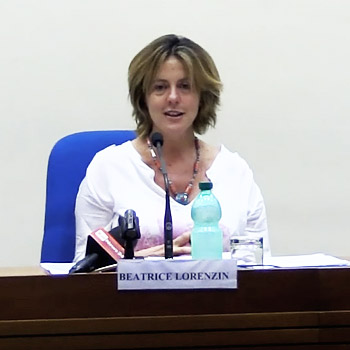A dichiararlo Scaccabarozzi, nel giorno in cui la Camera vota il Dl Enti locali, contenente i discussi provvedimenti sulla sanità. “Si può dire che lo Stato finanzia l’assistenza farmaceutica fino a ottobre, mentre per i restanti mesi dell’anno ci pensano le industrie”.
Of Redazione Aboutpharma Online – 4 agosto 2015

Scaccabarozzi then also spends a few words on the regulation of the revision of the pharmaceutical handbook, hoping that "it will be done with rigorously scientific criteria, as is the intention of Minister Lorenzin, and not cutting here and there". "I count on the seriousness of those who will make this review - he continued - otherwise the health of citizens is put at risk". And on the rule that provides for separate tenders for under-patent and expired-patent drugs. “Luckily this rule has been included – he says
“This provision – concludes the president of Farmindustria – also brings positive elements: such as the long-awaited strengthening of the Italian Medicines Agency (Aifa) which will bring more investments if the inspections are faster, thanks to the fact that there will no longer be a shortage of dedicated personnel in the agency".
Healthcare maneuver. The Chamber votes its trust in the Local Authorities Decree. The 2.35 billion cut in healthcare, the Aifa reform and the funds for Roman hospitals for the Jubilee are law

Pharmaceutical companies involved in the negotiation will have three options:
– o abbasseranno i prezzi a livello di quello di riferimento per il rimborso (che sarà quello più basso all’interno del raggruppamento);
– lasciare lo stesso prezzo e rimborsare con il pay back la differenza tra il loro prezzo e il prezzo di rimborso;
– non abbassare il prezzo, rifiutare anche il pay back e scegliere di passare in fascia C.
(ndr. Come è noto il testo originale dell’emendamento del governo sui raggruppamenti per categorie terapeuticamente assimilabili prevedeva che esso fosse calcolato senza distinguere i farmaci a brevetto scaduto da quelli con brevetto ancora in vigore. Nell’ultimo testo del maxiemendamento, che recepisce le modifiche della Commissione Bilancio, come abbiamo appena visto, è invece previsto che vi siano due prezzi di rimborso per ogni raggrupamento terapeutico: uno per i branded e uno per i farmaci a brevetto scaduto. In proposito l’Aifa, da noi interpellata, ha tenuto a precisare che non ci saranno comunque problemi a rispettare gli obiettivi di risparmio di questa parte della manovra valutati dall’intesa del 2 luglio in 500 milioni di euro annui).
Un’altra misura sui farmaci riguarda i biotechnological medicines, che in seguito alla scadenza brevettuale del principio attivo di un farmaco e in assenza dell’avvio di una concomitante procedura di contrattazione del prezzo relativa a un medicinale biosimilare o terapeuticamente assimilabile, saranno anch’essi oggetto di rinegoziazione del prezzo di rimborso a carico del Ssn del medicinale biotecnologico da parte dell’Aifa. (ndr. Anche questa parte del decreto è stata sub emendata in Commissione Bilancio dove è stato tolto il livello minimo del 20% di sconto da ottenere dalle aziende).
(… continues) estratto da quotidianosanità.it – 04 AGO 2015
Related news: Healthcare, half of the cuts from goods and services
The Local Authorities Legislative Decree is law: the Government's ax on Health
DECREE-LAW 19 June 2015, n. 78 Urgent provisions concerning local authorities. (15G00093) (GU n.140 del 19-6-2015 – Suppl. Ordinario n. 32 )
Amendments to Legislative Decree 78/2015
DL approved in the Senate Redetermination of the objectives of the internal stability pact
